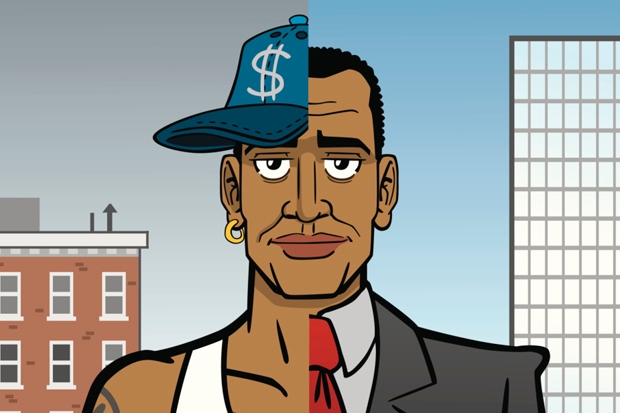Steven D. Levitt was a Harvard economist who specialised in politics and spent a lot of time watching cop shows on TV. Then he had an idea: why not switch from politics, which he found dull, to crime? Soon he was studying the crack cocaine economy.
Stephen J. Dubner was the guitarist in a rock band called the Right Profile. But he didn’t like the rock’n’roll lifestyle; he was a bookish type. So he became a journalist, got a job at the New York Times, and found himself interviewing a go-ahead Harvard economist who had written interesting stuff on the crack cocaine economy, among many other fascinating things. This, of course, was Levitt.
Dubner made a suggestion: why not write a book together, based on Levitt’s work? The result was the bestseller Freakonomics, and its sequel, Superfreakonomics. The two books were immensely popular, and also very good. In them, Levitt and Dubner told us the ugly truth about how life in the western world worked — or, as they put it, ‘the hidden side of everything’. They showed us, for instance, that the drug economy was very like the corporate world, and vice versa. This new book, Think Like a Freak, is a guide to Levitt’s thinking. It’s about how to look at the world, and see the ugly truth hidden behind the smiles, the ads and the corporate dads.
If you want to understand the world, Levitt said, look at people’s incentives. Be sure to understand that, where there is a system, people will be trying to game that system. For instance, when people want the crime rate to look like it’s going down — like the politicians in Atlanta who wanted to host the Olympics — they will explain, convincingly, that crime is going down. But when the police want more funding, they will argue, convincingly, that the crime rate is going up.
Levitt demonstrated other ugly things, and devised clever ways to see them. We thought pupils cheated in exams; well, teachers cheat too, to make themselves look good. And people are not honest on dating websites. And lots of people pretend not to be racist, but actually are. And in the crack cocaine economy, a small number of bosses cream off most of the money and the footsoldiers get paid a minimum wage. Why? Because, if you’re poor and black in some cities, crack dealing looks like the only game in town; people will work for very low pay in order to get a chance to climb the corporate ladder. Levitt and Dubner explained that, while affluent white kids liked to imitate black gangsters, the black gangsters themselves were imitating the white kids’ corporate dads.
All excellent stuff. Some of it was contentious. Levitt believed the crime rate had dropped in America, partly as the result of Roe vs Wade, the court case that legalised abortion. In other words, lots of disaffected young guys who would have been mugging and robbing — the kids whose mothers didn’t want them — were not mugging and robbing because they hadn’t been born.
What you have to do if you want to think like a freak is this. Apart from looking at people’s incentives, ‘putting away your moral compass’ is also important — a moral compass gets in the way of clear thinking. (Levitt thinks the NHS is like an all-you-can-eat buffet: ‘When people don’t pay the true cost of something they tend to consume it inefficiently.’)
Another bit of advice: don’t trust received wisdom — it’s like a comfort blanket. For instance, in the obesity debate, don’t think that we’re getting fat because we eat too much fat. Maybe we don’t eat enough fat, and eat too much sugar and carbohydrate instead.
‘Thinking like a freak,’ say Levitt and Dubner, ‘means you should work terribly hard to identify and attack the root cause of problems.’ That’s one way of putting it. But, I kept wondering, what are they really saying?
They’re saying all the stuff you already know if you live at the sharp end of life — if you’re poor, or a tycoon, or a cut-throat corporate dad. The people who don’t know this stuff, of course, are the middle class, who thought the world was a big, happy safety-net, and can now see it isn’t. In other words, the people who read books. This is the root cause of Levitt and Dubner’s success. They’re saying: don’t be soppy. Brace yourself. Look at how things really work.






Comments